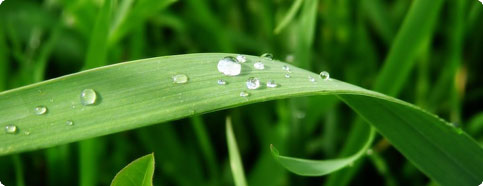Flora Library
Search for soil microorganisms


















soil microorganisms
Listing 1 - 10 from 121 for soil microorganisms
water supply coliform bacteria petri plates organic matter soil life peat moss ideal range seed starting pathogenic microbes gastrointestinal distress mid range rose garden grass clippings and leaves microbial contamination larger particles grass clippings
Isolation of Soil Microorganisms
... Soil Microorganisms A Project for Elementary Grades Title : Isolation of soil microorganisms Objective : To isolate and count the microorganisms found in a sample of soil ...
www.cps-scp.ca
Doug's Way With Roses
... should be removed and replaced with new mulch after the soil has warmed. (A very informative article, The Fungus Among Us! Blackspot ... foods must be acted upon by the soil microorganisms, which convert them to a usable form. The soil must be warm and there must ... benefits from a good mulch. It maintains a more constant soil temperature, helps retain soil moisture, acts as a barrier to weed growth, ...
carolinadistrict.org
Glossary of Terms
... chemical is in equal concentrations throughout the system. Disinfection The process in which most microorganisms are killed, especially pathogenic microbes. See chlorination. Dose The total amount of the compound ... and biological forces which may act upon that chemical, such as heat, water or soil microorganisms among others. Exposure Coming into contact with a compound which may or may not ...
extoxnet.orst.edu
Mulching is Good for Your Garden
... the soil of nitrogen more than mulch that is partially broken down. Older grass clippings and leaves laid down as a mulch can also cause a temporary nitrogen deficiency, as soil microorganisms pull from the soil the nitrogen they need to break down the vegetation. Once the mulch is broken down, the nitrogen will be released to the soil, but to ...
gardenline.usask.ca
coir
... seeds and pathogens while coir is produced “above ground” and has no opportunity to acquire soil contaminants. Peat decomposes rapidly in use, with its particles becoming smaller and more closely ... the soil structure open and stable so air can penetrate. This would be particularly useful for those who grow roses in containers. The high lignin content also encourages the growth of soil microorganisms ...
patriotdaylilysociety.org
The Gardener's Network - A to Z's of Home Gardening: pH Levels for
garden Soil
... . Sweet, sour, or bitter? These are common terms to describe soil ph. Sweet soil is the mid range, or ideal pH levels for most ... . Mid range pH is also the ideal range for growth of soil microorganisms that convert nitrogen in the air into a form that your plants ... your soil more acidic over time. Adding amendments to the soil can also alter your soil's pH. If you do not test your soil occasionally, ...
www.gardenersnet.com
Microorganisms, Bacteria, and Viruses in Drinking Water
... Microorganisms, Bacteria, and Viruses in Drinking Water Microorganisms, Bacteria and Viruses Microbiological contamination of water has long been a concern to the public. ... to know what is present before treatment is begun. Coliform Bacteria Coliform bacteria live in soil or vegetation and in the gastrointestinal tract of animals. Coliforms enter water supplies from the ...
extoxnet.orst.edu
ABOUT SOIL COMPACTION
... LIVING SOIL [A], this question must be considered. Roots must respire, i.e., burn glucose to release energy. Oxygen is a major requirement for this process . The mycorrhizae [M] are aerobic microorganisms ... the mulch on top of the grass on top of the compacted soil. We have seen composted materials reduce soil compaction when applied properly. How then do we get the mycorrhizae back ...
home.ccil.org
Soil Life
... protozoa swim in the film of water around soil particles and feed on bacteria. Mites eat fungi; fungi decompose soil organic matter. The microorganisms' primary role is to break down organic ... soil is tilled and left bare, soil life can be injured by high temperatures. To promote soil organisms; incorporate organic matter, till as little as possible, minimize soil compaction, maintain favorable soil ...
www.ces.ncsu.edu
Amending The Soil For Tropical Plants In Phoenix Arizona
... this purpose. Mixing compost in with the backfill soil, when planting, benefits the plant by creating food for microorganisms that will continue to decompose the organic material. Decomposition produces nutrients for the plant and also creates acid, which will offset the soil alkalinity. Compost also changes the structure of the soil ...
www.phoenixtropicals.com
These listings are filtered
View all for soil microorganisms